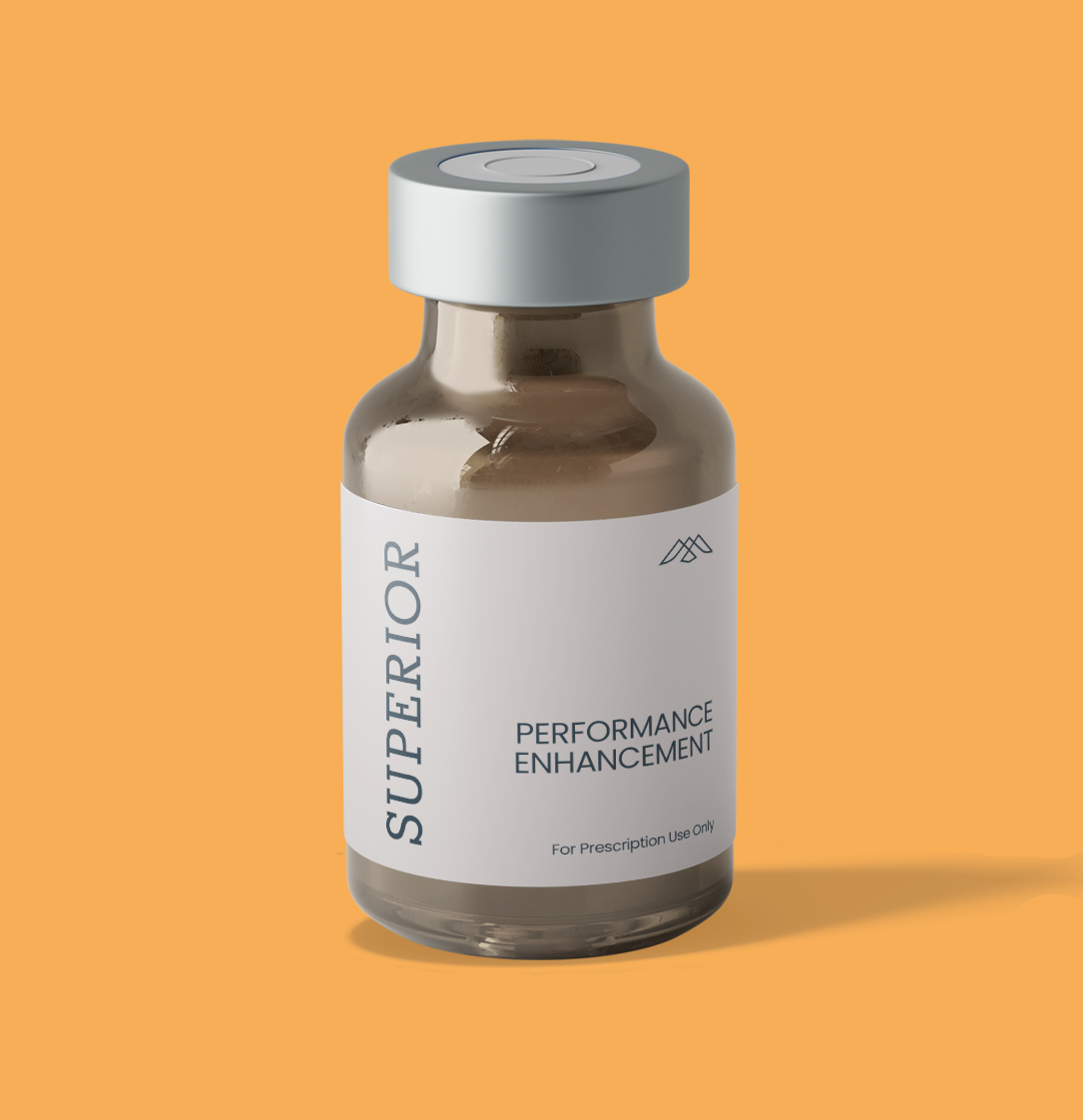Everything about Peptides for Structure Muscular Tissue: Facts and Insights for Serious Lifters
Peptides have arised as a crucial element for major lifters intending to enhance muscular tissue development and recovery. These substances, largely made up of amino acids, can greatly influence the body's natural hormonal agent production. Nevertheless, while their benefits are promising, they come with prospective dangers that require mindful consideration. Comprehending the detailed balance in between their drawbacks and benefits is vital for professional athletes looking to optimize their training. What exists in advance in this exploration of peptides?
What Are Peptides and How Do They Function?

The performance of peptides depends on their ability to resemble the action of normally taking place healthy proteins, resulting in enhanced communication in between cells. This communication helps with processes such as healthy protein synthesis and the launch of growth hormonal agents - buy Peptides for Building Muscle. Peptides can differ in sequence and length, each type offering distinct features. Comprehending just how various peptides function makes it possible for athletes and health and fitness enthusiasts to explore their prospective applications on behalf of their training objectives. On the whole, peptides represent a considerable area of interest in the domain of muscle advancement and recovery
Advantages of Peptides for Muscular Tissue Development
When taking into consideration the improvement of muscular tissue development, peptides use numerous benefits that can considerably affect a person's training results. These brief chains of amino acids play a vital role in promoting muscle hypertrophy and recovery. Peptides can stimulate the launch of development hormonal agent, which helps in muscular tissue repair work and regrowth, eventually bring about increased muscular tissue mass.
In addition, peptides boost healthy protein synthesis, improving the body's ability to keep and build muscle tissue. They can also enhance power levels, permitting for much more intense workouts and better performance throughout training sessions. Additionally, peptides may aid decrease recovery time by decreasing muscle soreness and inflammation, which is specifically beneficial for significant lifters who participate in extensive training programs.
Popular Peptides Utilized by Athletes
Athletes significantly transform to certain peptides to boost their performance and assistance muscular tissue recovery. Among one of the most prominent peptides utilized in sporting activities are Development Hormonal agent Launching Peptides (GHRPs), such as GHRP-6 and GHRP-2, which stimulate the body's natural growth hormonal agent production. Another extensively used peptide is Ipamorelin, recognized for its ability to promote muscle growth while reducing adverse effects. On top of that, CJC-1295, which works synergistically with GHRPs, has gotten appeal for its prolonged impact on development hormonal agent launch.
Thymosin Beta-4 (TB-500) is preferred for its function in tissue repair work and healing, assisting athletes after extreme training sessions. BPC-157, understood for its recovery buildings, is often consisted of in recuperation protocols. These peptides are looked for after not just for their possible to boost muscle mass however additionally for their capability to boost overall athletic performance and expedite recuperation times.
Prospective Dangers and Side Effects
Several customers of performance-enhancing peptides might ignore the side effects and possible dangers related to their use. While these compounds can offer benefits in muscle development this contact form and recovery, they can additionally bring about substantial wellness complications. buy Peptides for Building Muscle. Common negative effects might include hormonal imbalances, which can interfere with all-natural testosterone manufacturing and bring about inability to conceive or official website mood swings. Furthermore, some individuals report experiencing fluid retention, joint discomfort, and raised danger of infections at injection sites
Lasting use might cause a lot more severe repercussions, such as cardio problems, liver damage, or kidney dysfunction. Emotional results like anxiety and aggression have likewise been kept in mind. The lack of regulation in the peptide market raises problems regarding purity and dose, possibly leading to uncertain end results. It is crucial for individuals considering peptides to evaluate these dangers very carefully against the wanted benefits before waging their usage.

How to Incorporate Peptides Into Your Training Routine
When done thoughtfully, integrating peptides into a training routine can improve muscle mass development and recovery. First, individuals ought to consult a health care specialist to establish ideal peptide types and dosages customized to their specific objectives and health and wellness problems. Typical peptides for muscle structure include Growth Hormone Releasing Peptides (GHRPs) and Insulin-like Growth Element 1 (IGF-1)
Next off, individuals need to integrate peptides right into their routine around workout times for peak effectiveness. For example, carrying out peptides post-workout can advertise recovery and muscle mass synthesis. Consistency is crucial; as a result, maintaining a routine timetable is essential for optimizing benefits.
Additionally, incorporating peptide usage with a balanced diet plan abundant in healthy protein, together with an organized training program, will generate the most effective results. Surveillance development and adjusting does or types of peptides might be necessary based upon private reactions. Inevitably, a critical technique will certainly help lifters harness the full possibility of peptides in their training.
Often Asked Questions
Can Peptides Be Identified in Drug Examinations for Professional Athletes?
Peptides can indeed be discovered in drug tests for athletes. Various testing techniques are used to determine banned compounds, including specific peptide series, making it vital for athletes to be knowledgeable about their use and possible consequences.
Are Peptides Legal to Use in Affordable Sports?
Peptides are typically prohibited in affordable sporting activities by major companies like the Globe Anti-Doping Agency. Professional athletes using peptides risk disqualification and possible penalties, highlighting the relevance of sticking to laws controling performance-enhancing article source materials in their corresponding sports.
Just How Do Peptides Contrast to Steroids for Muscle Mass Growth?
Peptides normally advertise muscular tissue growth with less adverse effects than steroids, which can cause considerable hormonal inequalities. Nonetheless, steroids usually give quicker results, while peptides might supply a more steady and possibly safer technique to muscular tissue improvement.
Can Peptides Be Used for Fat Loss too?
Peptides can indeed be used for fat loss. They might boost metabolic process, advertise fat oxidation, and lower cravings, making them a potential tool in weight monitoring techniques when incorporated with proper diet plan and workout.
What Is the Suggested Dose for Muscle-Building Peptides?
The suggested dose for muscle-building peptides differs, commonly ranging from 1 to 3 milligrams daily, depending upon the details peptide and specific goals. Consulting a healthcare professional is recommended for individualized advice and safety and security.
Peptides have arised as an essential component for severe lifters intending to improve muscular tissue growth and healing. Peptides, typically referred to as the structure blocks of healthy proteins, are brief chains of amino acids linked by peptide bonds. Among the most preferred peptides used in sports are Development Hormonal agent Releasing Peptides (GHRPs), such as GHRP-6 and GHRP-2, which stimulate the body's natural growth hormonal agent manufacturing. Including peptides right into a training regimen can improve muscle development and healing when done thoughtfully. The recommended dose for muscle-building peptides varies, usually ranging from 1 to 3 milligrams per day, depending on the details peptide and individual goals.